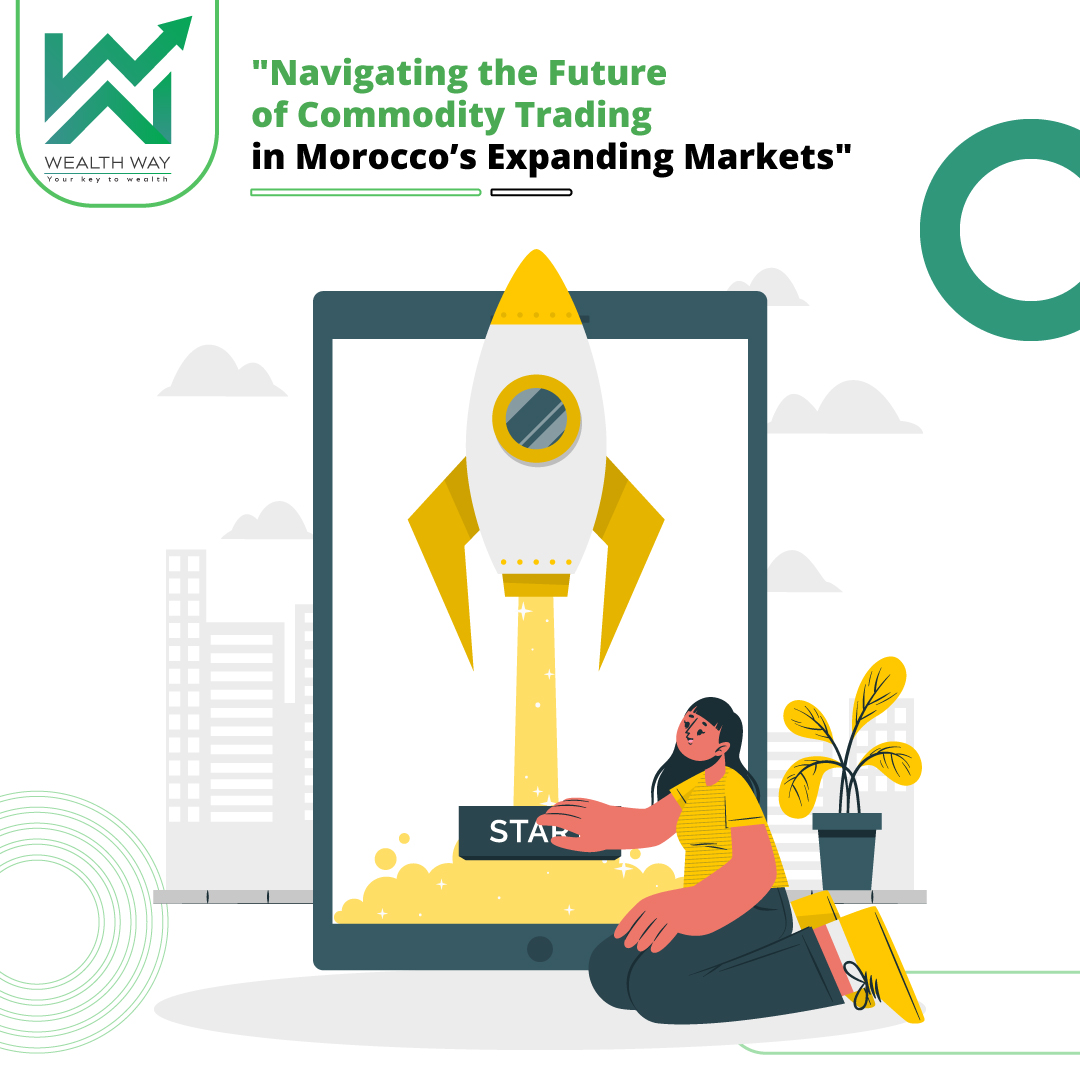
"Navigating the Future of Commodity Trading in Morocco’s Expanding Markets"
In recent years, Morocco has steadily established itself as a key player in the commodity trading sector, leveraging its unique geographic position, diverse resources, and growing economic influence. With a blend of both traditional and emerging sectors, Morocco is rapidly becoming an attractive destination for investors in commodity trading. As the country’s markets continue to expand, the future of commodity trading in Morocco holds vast potential.
Morocco’s Strategic Location and Its Impact on Commodity Trade
One of the key factors contributing to Morocco’s prominence in commodity trading is its strategic location. The country’s proximity to the European Union and its access to Atlantic and Mediterranean shipping lanes make it a vital point for the distribution of goods such as phosphates, agricultural products, and energy resources. This advantageous position enables Morocco to play an increasingly central role in global trade networks.
Furthermore, Morocco’s deep-water ports, including the Port of Tangier Med, which is one of the largest and most advanced in the Mediterranean, enhance the country’s trading capabilities. These ports facilitate the import and export of a wide range of commodities, offering easy access to both European and African markets. With infrastructure upgrades and trade agreements enhancing Morocco’s global connectivity, the country is poised to become a more prominent commodity trading hub in the near future.
Key Commodities Driving Morocco’s Trade Growth
In terms of commodity exports, Morocco has historically been known for its phosphate resources, which are some of the largest and highest-quality reserves in the world. Beyond phosphates, Morocco is also a leading exporter of agricultural products, including citrus fruits, olives, and tomatoes, which are in high demand across Europe and other regions.
With investments in renewable energy sources, particularly solar and wind, Morocco is transitioning from traditional energy reliance to cleaner alternatives, which opens new avenues for energy commodity trading. The development of green hydrogen, for instance, has been identified as a potential game-changer for the country’s future, and as the sector matures, Morocco will likely see increased foreign investment in its energy commodities.
In addition to these, the country is increasingly becoming a key player in the metals and mining sector. Morocco’s rich deposits of metals like copper, lead, and zinc offer significant opportunities for commodity traders. As global demand for these resources rises, especially in the context of growing green technologies and electric vehicle production, Morocco stands to benefit from these evolving market trends.
The Role of Technology in Shaping the Future of Commodity Trading in Morocco
The future of commodity trading in Morocco will also be shaped by technology. Advances in digital trading platforms and financial technology (FinTech) are already transforming how commodities are traded, both locally and internationally. For instance, platforms such as Wealthway FX are helping investors navigate the complexities of global markets by providing access to real-time data, analytics, and trading tools. These innovations make it easier for traders to execute transactions quickly, manage risk, and make more informed decisions.
The rise of blockchain technology is another trend that promises to revolutionize commodity trading. By providing secure and transparent transaction records, blockchain can streamline processes such as contract verification and payment settlement, reducing costs and risks associated with trading. As Morocco continues to modernize its financial infrastructure, these technological advancements will enable its commodity markets to grow and attract more foreign investors.
Challenges and Opportunities in Morocco’s Commodity Trading Market
While Morocco's commodity trading market is full of opportunities, there are several challenges to address. Regulatory uncertainty, fluctuating commodity prices, and geopolitical tensions could impact Morocco’s commodity exports. Additionally, the volatility in global energy prices can affect the trade dynamics in both energy and agricultural sectors.
However, Morocco’s strong economic reforms, government support for international trade agreements, and investment in infrastructure are working to mitigate these risks. The diversification of Morocco’s economy and its focus on renewable energy and high-value sectors like technology and finance will also help stabilize the country’s position as a competitive player in global commodity trading.
Conclusion
As Morocco’s markets continue to expand and evolve, the future of commodity trading in the country looks increasingly promising. Strategic investments in infrastructure, a strong export portfolio, and the integration of cutting-edge technologies into trading practices will help Morocco solidify its role as a key player in the global commodity market. For traders and investors seeking new opportunities, Morocco presents a dynamic landscape filled with potential.
For more information on navigating these exciting opportunities, Wealthway FX offers the tools and expertise to guide you through Morocco’s expanding commodity trading landscape.
Choose From Various Account Types To Suit Your Trading Style CREATE ACCOUNT
|| Trading in UAE || Trading in Hyderabad || Trading in Delhi || Forex Trading in Gurugram || Forex Trading in Sharjah || Commodity Trading in Oman || Commodity Trading in Maharashtra || Forex Trading in Indore || Forex Trading in Jalgaon || Commodity Trading in Thiruvananthapuram || Commodity Trading in Guntur || Commodity Trading in Ethiopia || Commodity Trading in Bahrain ||